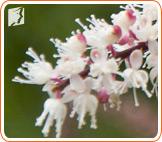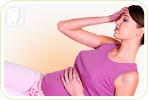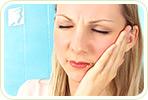If you are trying to find a natural way to keep your night sweats away, check out these three herbs that are known to help keep your estrogen levels balanced and your night sweats during menopause to a minimum.
Dong Quai

This perennial plant is found in the mountains of Japan, China, and Korea. Dong quai has been used most commonly to treat gynecological problems, and has at times, been referred to as the “female herb” because of its variety of health benefits for women.
Dong quai can increase estrogen levels, is full of phytoestrogens, increases metabolic actions and strengthens the immune system. All of these functions can help fight night sweats with very few negative side effects.
Black Cohosh

Black cohosh is a phytoestrogenic plant that grows in the woods of eastern North America. The word cohosh means “knobby rough roots” and was first used as a medicine by Native American Tribes. It is well-known that black cohosh benefits the female reproductive system and can be used to treat menopausal symptoms such as hot flashes, mood swings, depression, and irregular sleeping patterns. Many women have reported benefiting from black cohosh, saying that when using it they sleep better, experience relief from night sweats and stress, have more energy and are able to regain control of their lives.
Ginseng
Ginseng is a root that the Native Americans, Chinese, and Koreans have been using for centuries because of its medicinal properties. Substituting a woman's estrogen with phytoestrogens increase the levels of estrogen in the body. Since ginseng is full of phytoestrogens, it can help boost estrogen levels.

It is because of the low and fluctuating levels of estrogen and other hormones that women experience night sweats. By adding ginseng into your diet, you will be able to combat night sweats, hot flashes, and other symptoms without having to use the controversial hormone replacement therapy (HRT).
Knowing the different natural treatments to curb night sweats is important, but you should also learn about what causes night sweats so that you know how to manage them.
Sources
- The National Institute of Health.(n.d). "Signs of the Menopausal Transition" .Retrieved from www.nih.gov
- Boston Women's Health Collective. "Hot Flashes, Night Sweats and Sleep Disturbances". Our Bodies, Ourselves, 2006.
- Von Muhlen, DG, et al. "A community-based study of menopause symptoms and estrogen replacement in older women". Maturitas. Sept 1995; 22(2):71-8.



